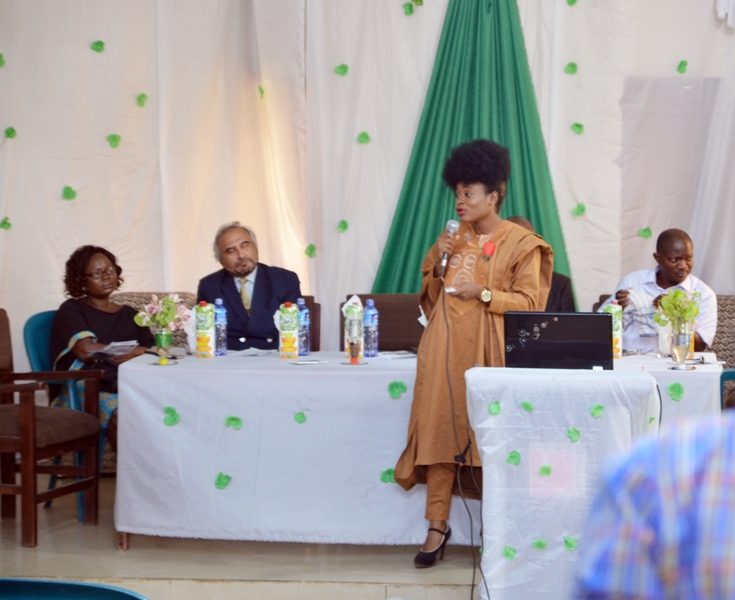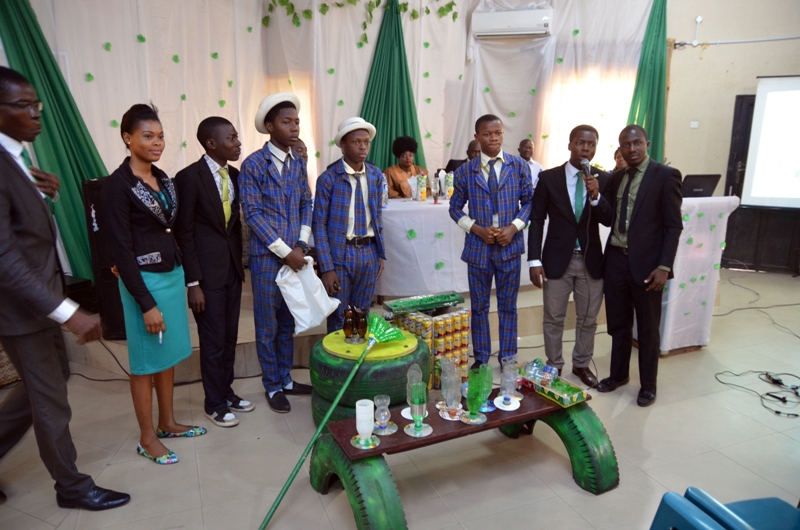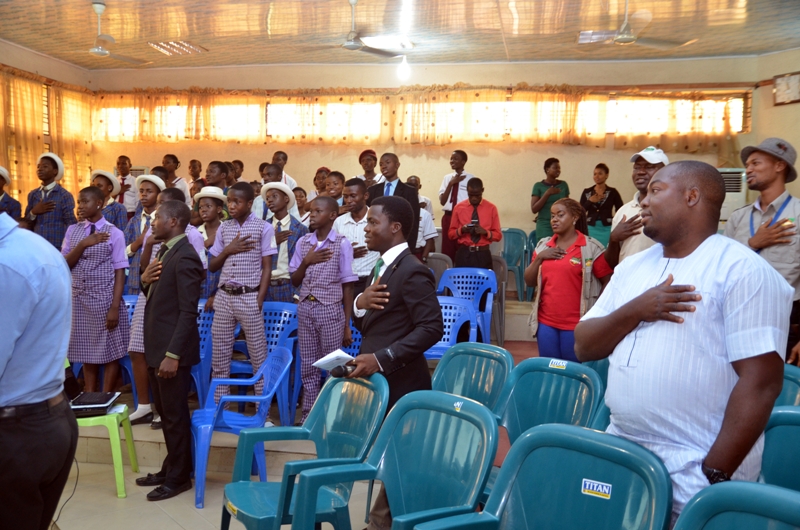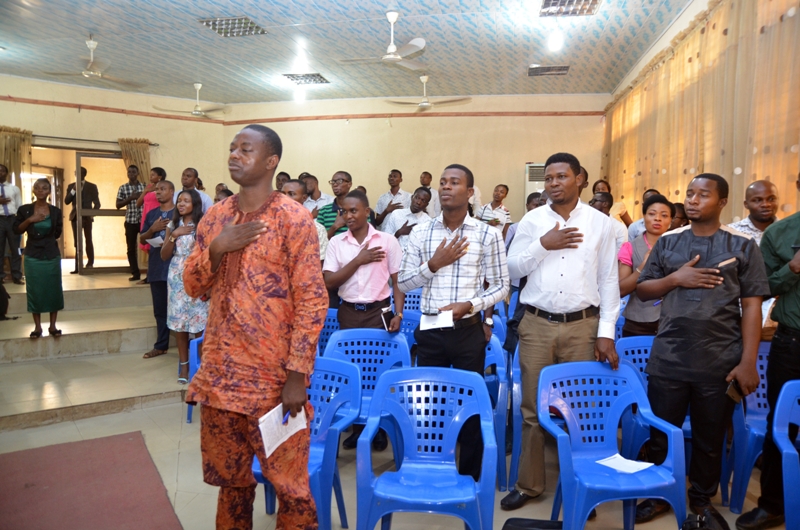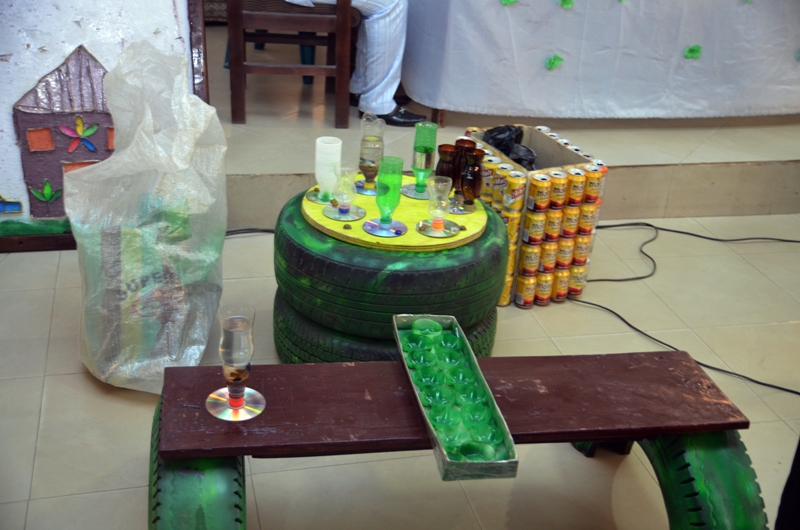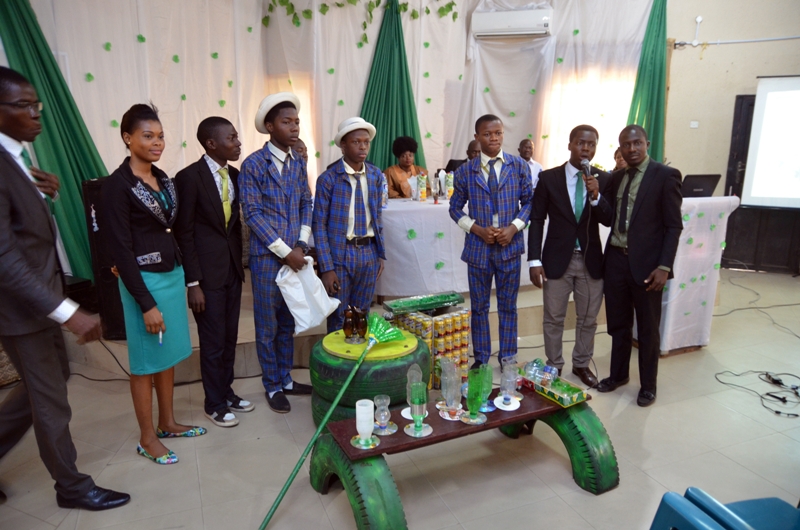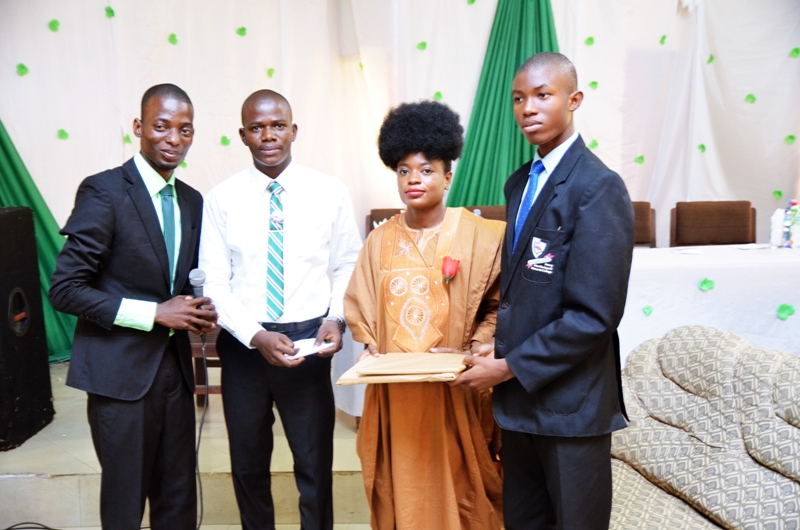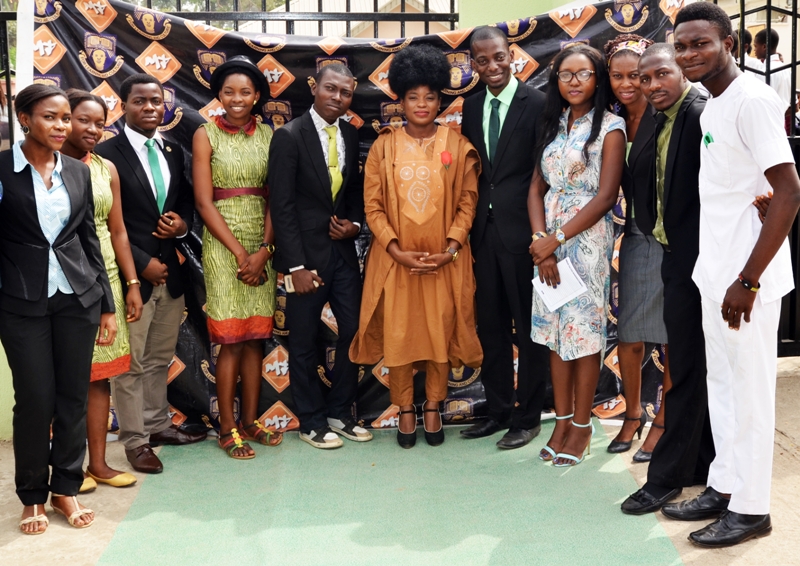It is generally acknowledged that environment plays a crucial role in the evolution and development of societies. Indeed experience all over the world has shown that human societies every where must face ecological problems which are peculiar to their own setting. The Institute of Ecology and Environmental Studies (IEES), of Obafemi Awolowo University, Ile-Ife was established in July 1982, as an autonomous multidisciplinary institute to tackle ecological problems of development.
IEES and ECOMSA during her week long program presented a merit award to Adenike Akinsemolu, the Founder of Green Campus Initiative, GCI. The ADVOCATE OF GREEN ENVIRONMENT Merit Award was presented to the Adenike Akinsemolu in recognition of her immense contribution to the promotion of environmental health and environmental sustainability in Nigeria through her renowned Initiative, the Green Campus Initiative.
ADENIKE AKINSEMOLU RECEIVING THE ADVOCATE OF GREEN ENVIRONMENT MERIT AWARD
Held annually, the ECOMSA week entails series of events and activities that highlights environmental health, celebrates the environment, and discusses issues bordering around sustainable development. The Merit Award was presented to GCI's Founder, on February the 25th, 2016, at the Progressive Hall, OAU.
The theme of the event, The Modern Environmentalism, a Platform for Enviro-Preneurship, was rightly selected, with the aim of introducing traditional but yet key ideas and topics.
Adenike Akinsémolu, also a speaker at the the event discussed 'People, Planet, and Profit' : the idea of going green with emphasis on social entrepreneurship.
ADENIKE AKINSEMOLU DISCUSSING 'PEOPLE, PLANET AND PROFIT', THE IDEA OF GOING GREEN
The Green Campus Initiative is influencing Nigerian Universities to take on ways that would ensure environmental sustainability. The outcome of these activities by GCI is remarkable and visible.
SECONDARY SCHOOL STUDENTS EXHIBITING WHAT THEY RECYCLED
SPECIAL GUESTS TAKING THE GREEN PLEDGE
Congratulations Adenike Akinsémolu! Thank you IEES and ECOMSA.
ABOUT THE AUTHOR
Christopher Oghenekevwe Oghenechovwen , a B.Tech student of Meteorology and Climate Science (FUTA), is a decolonized African, environmentalist and ready volunteer. He is 2013 Citizenship and Leadership Certified by CLTC, Nigerian Federal Ministry of Youth Development, a 2015 UNESCO & Athabasca University student on Media and Information Literacy and Intercultural Dialogue, 2015 Senior Category Gold Winner of The Queen's Commonwealth Essay Competition, and youth correspondent at yourcommonwealth.org . His growing passions lie within the circle of Climate Action, Media and Information, IT, Youth Education and Leadership. Apart from volunteering with Earthplus, The Green Campus Initiative, and doing creative writing, Oghenekevwe loves to connect with people. Invite him for a healthy conversation via chrischovwen@gmail.com



